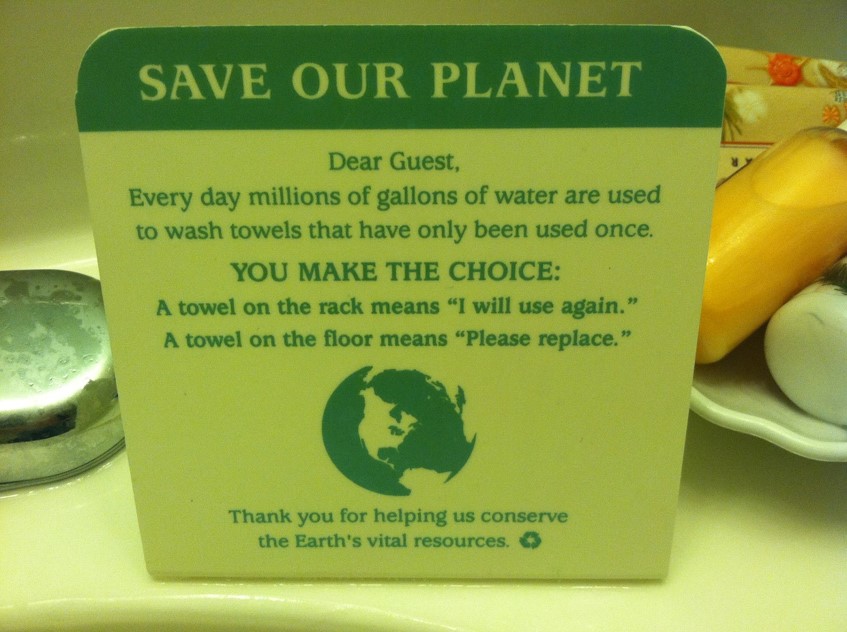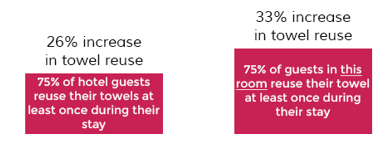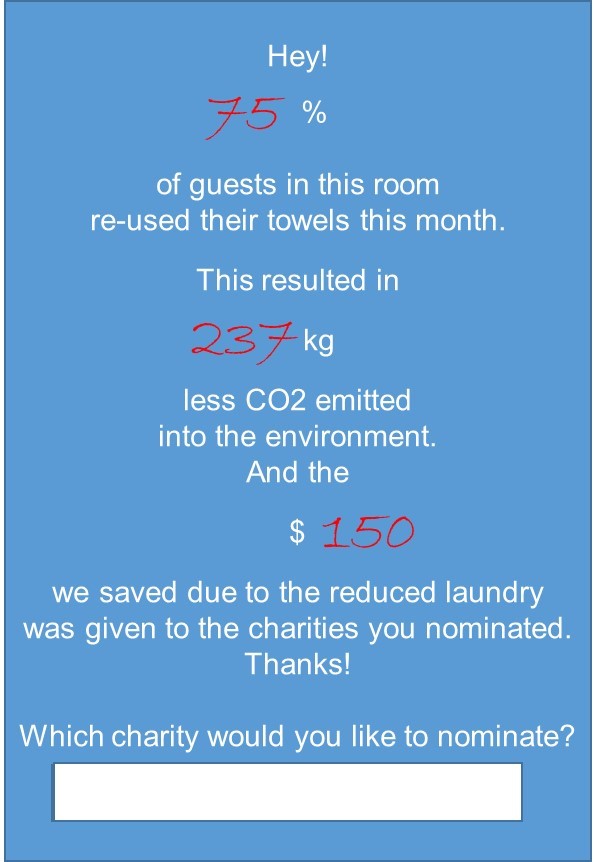Speaking as someone who spends the majority of his life staying in hotels, I’d have to say the novelty of the signs encouraging me to re-use my towels was pretty short-lived. Now, probably ten years since the signs first started appearing in hotel bathrooms around the planet, they’ve come to feel like some kind of dripping-tap torture.
The reason for the torture comes through the knowledge that, despite knowing the signs have never worked, somehow the hotel industry still hasn’t worked out how to dig themselves out of the hole it’s dug for itself.
It’s not as if the reasons for the counter-productive outcomes the signs produce are that difficult to diagnose. We can all read the words, but we also, too, make a swift interpretation of what the hotel management actually means. Something along the lines, ‘our laundry bill is really high, help us to lower it, please, even though we won’t be passing any of that saving along to you. Thanks.’
The signs are a clear signal of an industry that, ironically – given that they’re fundamentally in the ‘people business – doesn’t understand what drives peoples’ behaviour.
What’s really annoying about this is that we know the human behaviour story pretty much boils down to the ABC-M quartet of drivers we so frequently talk about in our workshops. Human Intangibles Rule #1: when you change anything, make sure stakeholders perceive perceptions of their Autonomy, Belonging, Competence and Meaning have all become better than they were before the change.
Look at the ‘save our planet’ towel re-hanging signs through this ABC-M lens and it becomes more than obvious why the signs would never work:
Autonomy – by telling people they have ‘the choice’ while at the same time shaming them into hanging up their towel, the sign speaks from a higher moral ground and thus takes away autonomy.
Belonging – while in theory playing on the idea that we all have a collective responsibility to do something about the environment, the only tribe that wins were I to hang up my towel is the hotel chain and their lowered laundry bill, and that’s a tribe I don’t belong to.
Competence – by telling me something that I’ve already known about for the last decade, the sign implicitly assumes I’m an incompetent idiot.
Meaning – saving the planet is highly meaningful; re-hanging towels is such a trivial part of that story that by attempting to make a connection between the two the enormous contrast in effect exaggerates the meaninglessness of the act of re-hanging towels.
So, let’s try another approach. This time based at least in part on the ‘ABC-M gets better’ heuristic:
These approaches do a better job of re-framing the Belonging part of the story. We’re now in effect asked to become part of the majority of people that re-hang their towels. I can imagine that it had the impact that it had. 26% more people hang their towels.
Now how about this one:
Autonomy – the guest is in control. They even get to write on the card and tell the hotel management what to do with the money they save.
Belonging – the guest gets to be part of the (majority) tribe of towel re-hangers. Plus they get to pass the money the hotel saves onto a tribe of their choice.
Competence – by telling the guest what the towel re-hanging exchange rate is in terms of environmental benefit and cost saving, the hotel helped make them better informed and therefore their competence went up.
Meaning – by connecting the trivial act of re-hanging my towel to a financial gain to something the guest cares about, the hotel just made the act a meaningful one.



